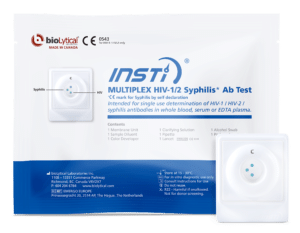- Our Productsclose
Our Products
Easy. Quick. Accurate.
- HIV and Testing
- Stories
- INSTI Times
- Our Productsclose
Our Products
Easy. Quick. Accurate.
- HIV and Testing
- Stories
- INSTI Times
Rabies is a fatal viral infection that primarily affects mammals, including humans. The virus is transmitted through the bite of an infected animal, often a dog, bat, or raccoon. Once symptoms appear, rabies is nearly always fatal. However, with the advancement of medical science, rabies can be prevented through vaccination. In this guide, we will delve into the importance of the rabies vaccine for humans, its administration, and the potential side effects associated with it.

What is Rabies Vaccine for Humans?
The rabies vaccine for humans is a vaccine used to prevent rabies infection. It is recommended for people who are at high risk of exposure to rabies, including veterinarians, animal handlers, and travelers to areas where rabies is prevalent. The vaccine is also administered to individuals after a potential exposure to rabies, a process known as post-exposure prophylaxis (PEP).
How is the Rabies Vaccine Administered?
The rabies vaccine for humans is administered in a series of doses. For pre-exposure prophylaxis (preventative vaccination before potential exposure), the vaccine is typically given in three doses over the course of a month. For post-exposure prophylaxis (after potential exposure), the number of doses may vary depending on the individual’s vaccination history, but it generally includes a series of four doses over 14 days, along with rabies immunoglobulin if the person has not been previously vaccinated.
Rabies Vaccine Side Effects in Humans
Like all vaccines, the rabies vaccine can cause side effects in some individuals. Most side effects are mild and resolve on their own within a few days. Common side effects include:
- Pain, redness, or swelling at the injection site
- Headache
- Nausea
- Muscle aches
- Dizziness
- Fever
Severe allergic reactions to the rabies vaccine are rare but can occur. Symptoms of a severe allergic reaction include hives, swelling of the face and throat, difficulty breathing, a fast heartbeat, dizziness, and weakness. If you experience any of these symptoms after receiving the rabies vaccine, seek medical attention immediately.
The Importance of Rabies Vaccine for Humans
Rabies is preventable through vaccination. The rabies vaccine for humans plays a crucial role in preventing the disease in individuals at risk of exposure and in controlling its spread. For travelers to areas with a high incidence of rabies, vaccination offers peace of mind and protection from this deadly virus.
In conclusion, the rabies vaccine is a vital tool in the fight against rabies. While side effects can occur, the benefits of vaccination far outweigh the risks, especially for those at high risk of exposure to rabies. If you are traveling to an area where rabies is common or work in close proximity to animals, consider getting vaccinated. Remember, once symptoms of rabies appear, the disease is almost always fatal, making prevention through vaccination all the more critical.
References
https://www.cdc.gov/rabies/medical_care/vaccine.html
https://www.cdc.gov/vaccines/hcp/vis/vis-statements/rabies.html
https://en.wikipedia.org/wiki/Rabies_vaccine
https://www.chop.edu/centers-programs/vaccine-education-center/vaccine-details/rabies-vaccine
https://www.mayoclinic.org/diseases-conditions/rabies/diagnosis-treatment/drc-20351826
Our website uses cookies. By continuing to browse our site you are agreeing to our Privacy Policy.



